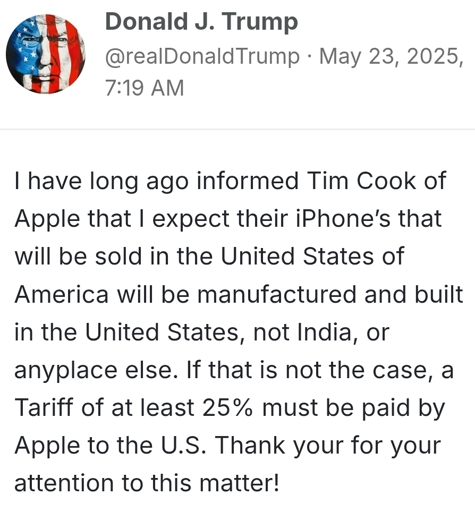[JS Required] The OpenAI Files Document Broken Promises, Safety Compromises, Conflicts of Interest, and Leadership Concerns
-
Major Areas of Concern:
::: spoiler Restructuring: Analysis of planned changes to the nonprofit's relationship with its for-profit subsidiary
- OpenAI plans to remove limits on investor returns: OpenAI once capped investor profits at a maximum of 100x to ensure that, if the company succeeds in building AI capable of automating all human labor, the proceeds would go to humanity. They have now announced plans to remove that cap.
- OpenAI portrays itself as preserving nonprofit control while potentially disempowering the nonprofit: OpenAI claims to have reversed course on a decision to abandon nonprofit control, but the details suggest that the nonprofit’s board would no longer have all the authority it would need to hold OpenAI accountable to its mission.
- Investors pressured OpenAI to make structural changes: OpenAI has admitted that it is making these changes to appease investors who have made their funding conditional on structural reforms, including allowing unlimited returns—exactly the type of investor influence OpenAI’s original structure was designed to prevent.
:::
::: spoiler CEO Integrity: Concerns regarding leadership practices and misleading representations from OpenAI CEO Sam Altman
- Senior employees have attempted to remove Altman at each of the three major companies he has run: Senior employees at Altman’s first startup twice urged the board to remove him as CEO over “deceptive and chaotic” behavior, while at Y Combinator, he was forced out and accused of absenteeism and prioritizing personal enrichment.
- Altman claimed ignorance of a scheme to coerce employees into ultra-restrictive NDAs: However, he signed documents giving OpenAI the authority to revoke employees’ vested equity if they didn’t sign the NDAs.
- Altman repeatedly lied to board members: For example, Altman stated that the legal team had approved a safety process exemption when they had not, and he reported that one board member wanted another board member removed when that was not the case.
:::
::: spoiler Transparency & Safety: Concerns regarding safety processes, transparency, and organizational culture at OpenAI
- OpenAI coerced employees into signing highly restrictive NDAs threatening their vested equity: Former OpenAI employees faced highly restrictive non-disclosure and non-disparagement agreements that threatened the loss of all vested equity if they ever criticized the company, even after resigning.
- OpenAI has rushed safety evaluation processes: OpenAI rushed safety evaluations of its AI models to meet product deadlines and significantly cut the time and resources dedicated to safety testing.
- OpenAI insiders described a culture of recklessness and secrecy: OpenAI employees have accused the company of not living up to its commitments and systematically discouraging employees from raising concerns.
:::
::: spoiler Conflicts of Interest: Documenting potential conflicts of interest of OpenAI board members
- OpenAI’s nonprofit board has multiple seemingly unaddressed conflicts of interest: While OpenAI defines ‘independent’ directors as those without OpenAI equity, the board appears to overlook conflicts from members' external investments in companies that benefit from OpenAI partnerships.
- CEO Sam Altman downplayed his financial interest in OpenAI: Despite once claiming to have no personal financial interest in OpenAI, much of Altman’s $1.6 billion net worth is spread across investments in OpenAI partners including Retro Biosciences and Rewind AI, which stand to benefit from the company’s continued growth.
- No recusals announced for critical restructuring decision: Despite these conflicts, OpenAI has not announced any board recusals for the critical decision of whether they will restructure and remove profit caps, unlocking billions of dollars in new investment.
:::

The OpenAI Files
The OpenAI Files is the most comprehensive collection to date of documented concerns with governance practices, leadership integrity, and organizational culture at OpenAI.

(www.openaifiles.org)
-
Major Areas of Concern:
::: spoiler Restructuring: Analysis of planned changes to the nonprofit's relationship with its for-profit subsidiary
- OpenAI plans to remove limits on investor returns: OpenAI once capped investor profits at a maximum of 100x to ensure that, if the company succeeds in building AI capable of automating all human labor, the proceeds would go to humanity. They have now announced plans to remove that cap.
- OpenAI portrays itself as preserving nonprofit control while potentially disempowering the nonprofit: OpenAI claims to have reversed course on a decision to abandon nonprofit control, but the details suggest that the nonprofit’s board would no longer have all the authority it would need to hold OpenAI accountable to its mission.
- Investors pressured OpenAI to make structural changes: OpenAI has admitted that it is making these changes to appease investors who have made their funding conditional on structural reforms, including allowing unlimited returns—exactly the type of investor influence OpenAI’s original structure was designed to prevent.
:::
::: spoiler CEO Integrity: Concerns regarding leadership practices and misleading representations from OpenAI CEO Sam Altman
- Senior employees have attempted to remove Altman at each of the three major companies he has run: Senior employees at Altman’s first startup twice urged the board to remove him as CEO over “deceptive and chaotic” behavior, while at Y Combinator, he was forced out and accused of absenteeism and prioritizing personal enrichment.
- Altman claimed ignorance of a scheme to coerce employees into ultra-restrictive NDAs: However, he signed documents giving OpenAI the authority to revoke employees’ vested equity if they didn’t sign the NDAs.
- Altman repeatedly lied to board members: For example, Altman stated that the legal team had approved a safety process exemption when they had not, and he reported that one board member wanted another board member removed when that was not the case.
:::
::: spoiler Transparency & Safety: Concerns regarding safety processes, transparency, and organizational culture at OpenAI
- OpenAI coerced employees into signing highly restrictive NDAs threatening their vested equity: Former OpenAI employees faced highly restrictive non-disclosure and non-disparagement agreements that threatened the loss of all vested equity if they ever criticized the company, even after resigning.
- OpenAI has rushed safety evaluation processes: OpenAI rushed safety evaluations of its AI models to meet product deadlines and significantly cut the time and resources dedicated to safety testing.
- OpenAI insiders described a culture of recklessness and secrecy: OpenAI employees have accused the company of not living up to its commitments and systematically discouraging employees from raising concerns.
:::
::: spoiler Conflicts of Interest: Documenting potential conflicts of interest of OpenAI board members
- OpenAI’s nonprofit board has multiple seemingly unaddressed conflicts of interest: While OpenAI defines ‘independent’ directors as those without OpenAI equity, the board appears to overlook conflicts from members' external investments in companies that benefit from OpenAI partnerships.
- CEO Sam Altman downplayed his financial interest in OpenAI: Despite once claiming to have no personal financial interest in OpenAI, much of Altman’s $1.6 billion net worth is spread across investments in OpenAI partners including Retro Biosciences and Rewind AI, which stand to benefit from the company’s continued growth.
- No recusals announced for critical restructuring decision: Despite these conflicts, OpenAI has not announced any board recusals for the critical decision of whether they will restructure and remove profit caps, unlocking billions of dollars in new investment.
:::

The OpenAI Files
The OpenAI Files is the most comprehensive collection to date of documented concerns with governance practices, leadership integrity, and organizational culture at OpenAI.

(www.openaifiles.org)
You’re telling me that Sam ConvenientLastname is a shitty person and the company they run is also a shitty thing? Say it ain’t so!!!
-
Major Areas of Concern:
::: spoiler Restructuring: Analysis of planned changes to the nonprofit's relationship with its for-profit subsidiary
- OpenAI plans to remove limits on investor returns: OpenAI once capped investor profits at a maximum of 100x to ensure that, if the company succeeds in building AI capable of automating all human labor, the proceeds would go to humanity. They have now announced plans to remove that cap.
- OpenAI portrays itself as preserving nonprofit control while potentially disempowering the nonprofit: OpenAI claims to have reversed course on a decision to abandon nonprofit control, but the details suggest that the nonprofit’s board would no longer have all the authority it would need to hold OpenAI accountable to its mission.
- Investors pressured OpenAI to make structural changes: OpenAI has admitted that it is making these changes to appease investors who have made their funding conditional on structural reforms, including allowing unlimited returns—exactly the type of investor influence OpenAI’s original structure was designed to prevent.
:::
::: spoiler CEO Integrity: Concerns regarding leadership practices and misleading representations from OpenAI CEO Sam Altman
- Senior employees have attempted to remove Altman at each of the three major companies he has run: Senior employees at Altman’s first startup twice urged the board to remove him as CEO over “deceptive and chaotic” behavior, while at Y Combinator, he was forced out and accused of absenteeism and prioritizing personal enrichment.
- Altman claimed ignorance of a scheme to coerce employees into ultra-restrictive NDAs: However, he signed documents giving OpenAI the authority to revoke employees’ vested equity if they didn’t sign the NDAs.
- Altman repeatedly lied to board members: For example, Altman stated that the legal team had approved a safety process exemption when they had not, and he reported that one board member wanted another board member removed when that was not the case.
:::
::: spoiler Transparency & Safety: Concerns regarding safety processes, transparency, and organizational culture at OpenAI
- OpenAI coerced employees into signing highly restrictive NDAs threatening their vested equity: Former OpenAI employees faced highly restrictive non-disclosure and non-disparagement agreements that threatened the loss of all vested equity if they ever criticized the company, even after resigning.
- OpenAI has rushed safety evaluation processes: OpenAI rushed safety evaluations of its AI models to meet product deadlines and significantly cut the time and resources dedicated to safety testing.
- OpenAI insiders described a culture of recklessness and secrecy: OpenAI employees have accused the company of not living up to its commitments and systematically discouraging employees from raising concerns.
:::
::: spoiler Conflicts of Interest: Documenting potential conflicts of interest of OpenAI board members
- OpenAI’s nonprofit board has multiple seemingly unaddressed conflicts of interest: While OpenAI defines ‘independent’ directors as those without OpenAI equity, the board appears to overlook conflicts from members' external investments in companies that benefit from OpenAI partnerships.
- CEO Sam Altman downplayed his financial interest in OpenAI: Despite once claiming to have no personal financial interest in OpenAI, much of Altman’s $1.6 billion net worth is spread across investments in OpenAI partners including Retro Biosciences and Rewind AI, which stand to benefit from the company’s continued growth.
- No recusals announced for critical restructuring decision: Despite these conflicts, OpenAI has not announced any board recusals for the critical decision of whether they will restructure and remove profit caps, unlocking billions of dollars in new investment.
:::

The OpenAI Files
The OpenAI Files is the most comprehensive collection to date of documented concerns with governance practices, leadership integrity, and organizational culture at OpenAI.

(www.openaifiles.org)
There is nothing open about openai, and that was obvious way before they released chatgpt.








